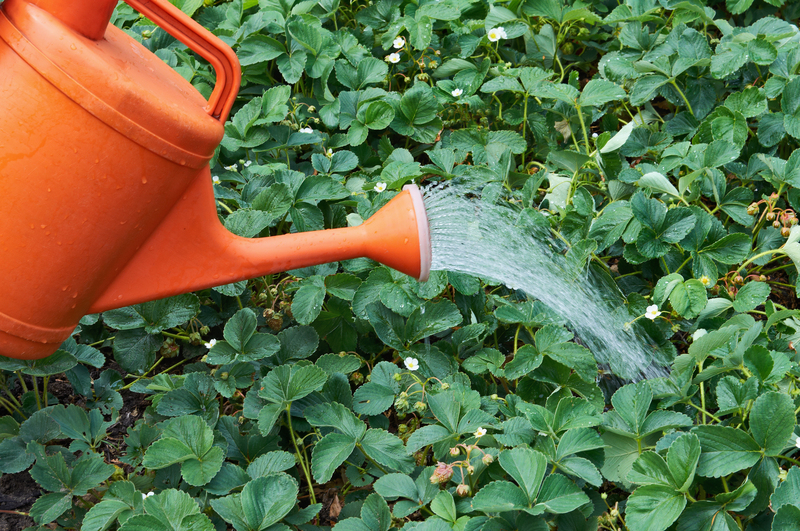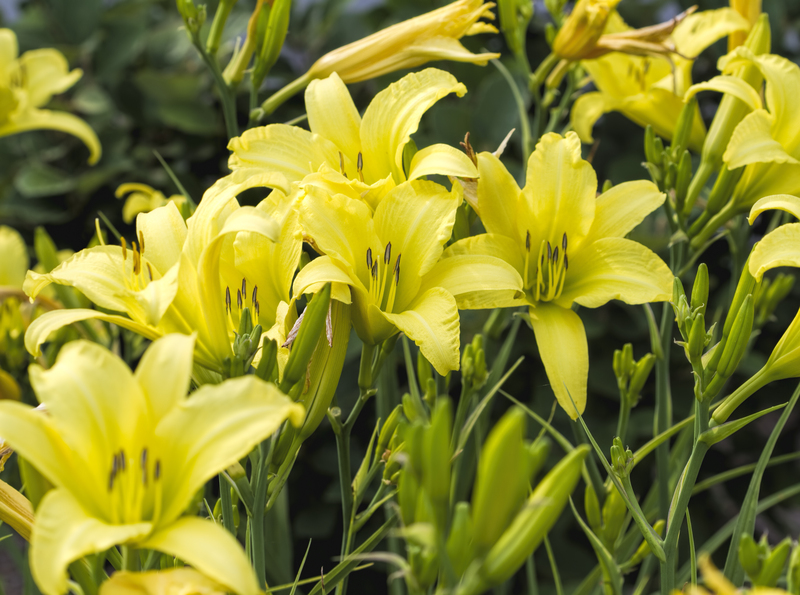9 Gardening Insights Every Beginner Needs to Know
Posted on 22/06/2025
9 Gardening Insights Every Beginner Needs to Know
Are you thinking about starting your gardening journey? Gardening can be an incredibly rewarding and therapeutic activity, but it can also feel overwhelming for beginners. With so much advice out there, it can be hard to know where to start. In this comprehensive guide, we'll cover 9 essential gardening insights every beginner should know. Whether you have a small backyard, a few containers on your balcony, or just some windowsill space, these beginner-friendly gardening tips will set you on the path to success.
1. Understand Your Local Climate and Growing Zone
Before you plant your first seed or seedling, it's important to research your local climate. Gardening is highly dependent on the weather and climate conditions, such as temperature, rainfall, and length of growing season. Every area has a specific USDA Plant Hardiness Zone that dictates which plants will thrive there.
- Check your USDA Plant Hardiness Zone using online resources.
- Choose plants that are suitable for your region's temperature range.
- Consult local gardening centers for the best plant varieties.
Knowing your zone helps you avoid the disappointment of planting species that won't survive year-round.

2. Start Small and Simple
One of the most common mistakes beginners make is starting too big. It's better to begin with a manageable space and focus on learning as you go. Consider starting with a few easy-to-grow plants or vegetables suited for your environment.
- Try herbs like basil, mint, or parsley.
- Grow hardy vegetables such as lettuce, radishes, or green beans.
- Choose flowers known for resilience, like marigolds or sunflowers.
Success with simple plants will build your confidence and gardening skills.
3. Soil Health is the Foundation of a Thriving Garden
If you want beautiful plants, healthy soil is the key. Understanding your soil's composition--whether it's clay, loam, sand, or silt--will tell you what amendments are needed.
- Test your soil for pH, nutrients, and texture with an at-home kit or local extension service.
- Amend poor soil with organic compost or well-rotted manure.
- Mulch your beds to retain moisture and suppress weeds.
Healthy soil will ensure your plants receive the nutrients they need to flourish.
4. Learn the Art of Proper Plant Placement
Not all plants have the same needs. Some require full sun, others thrive in shade; some need dry soil, while others prefer more moisture. The placement of your plants is crucial.
- Read plant labels or seed packets for sunlight and spacing requirements.
- Arrange plants so taller varieties don't shade out smaller ones.
- Group plants with similar needs together for easier care.
A well-considered layout ensures your plants get what they need and your garden looks attractive all season long.
5. Master the Basics of Watering
One of the most common beginner gardening mistakes is either overwatering or underwatering plants. Both can be fatal. **Understanding how much and how often to water** is fundamental to gardening success.
- Check soil moisture before watering by sticking your finger an inch deep into the soil.
- Water early in the day to reduce evaporation and prevent disease.
- Deep, less frequent watering encourages deeper root growth.
- Use mulch to help plants retain moisture naturally.
Remember, most garden plants prefer consistently moist--but not soggy--soil.
6. Familiarize Yourself with Common Pests and Diseases
No garden is immune to pests and diseases. New gardeners should learn to identify common problems so they can act quickly.
- Regularly inspect leaves for discoloration, holes, or wilting.
- Look for aphids, slugs, or caterpillars that love tender new growth.
- Learn about natural pest control, such as introducing beneficial insects or using organic sprays.
- Practice crop rotation and good sanitation to limit disease build-up.
Early detection is key to saving your plants and keeping your garden healthy.
7. Patience is Part of Gardening Success
Gardening is a journey, not a race. *Many beginners expect instant results*, but plants need time to grow, bloom, or bear fruit.
- Celebrate small signs of progress: sprouts breaking through the soil, new leaves, budding flowers.
- Keep a garden journal to track growth and successes each season.
- Understand that setbacks and failures are natural and part of the learning process.
With time and patience, you'll gain the experience needed for a productive, beautiful garden.
8. Continuous Learning and Experimentation Pays Off
Every garden is unique. There is always something new to discover, even for experienced gardeners. Stay curious and experiment to find what works best for you.
- Read gardening books, blogs, and forums to learn new techniques.
- Attend local workshops or join gardening clubs for hands-on advice.
- Don't be afraid to try new plants, arrangement styles, or growing methods like vertical gardening or hydroponics.
*Each season you'll develop new gardening skills and uncover new passions.*
9. Enjoy the Process and Connect with Nature
Above all, gardening should be enjoyable. Take time to appreciate the beauty and tranquility that your garden offers. Gardening is a way to connect with nature, relax, and nurture both plants and yourself.
- Take photographs of your garden's progress.
- Share surplus produce or flowers with friends and neighbors.
- Spend quiet time in your garden to listen to birds or observe pollinators.
Your garden is more than just a collection of plants--it's a living, evolving space that will bring joy and fulfillment for years to come.
Bonus Gardening Tips for Beginners
- Invest in quality gardening tools, but don't overspend at the start.
- Use raised beds or containers if your soil is poor or you have limited space.
- Rotate your crops each year to prevent soil depletion and reduce pests.
- Label your plants to avoid confusion, especially if you're growing from seed.
- Compost your kitchen and garden waste to create your own nutrient-rich soil amendment.

FAQs: New Gardener Questions Answered
- Q: How often should I water my garden?
- *Most gardens require about an inch of water per week, either from rainfall or manual watering. However, this can vary based on soil type, plant species, and weather.*
- Q: Can I garden if I only have a small space?
- *Absolutely! Container gardening, vertical gardens, and window boxes are perfect for small spaces and can yield beautiful results.*
- Q: What are the easiest plants for beginners?
- *Herbs like basil and chives, flowers such as marigolds, and veggies like lettuce and green beans are all great starter plants.*
Conclusion: The Joy of Gardening for Beginners
Gardening is a fulfilling activity that offers both beauty and bounty. By following these 9 essential gardening basics--understanding your climate, starting small, nourishing your soil, placing plants properly, mastering watering, spotting pests, practicing patience, embracing learning, and savoring the experience--you'll set a strong foundation for years of gardening success.
Every gardener, no matter how experienced, was once a beginner. With curiosity and commitment, you'll soon reap the joys--and the harvests--of your own personal garden paradise.
Happy Gardening!
Latest Posts
From Waste-Bins to Rich Terra: Soil Transformation
Maximizing Joyful Gardening Amidst Canine Curiosity
Optimizing Your Garden Layout for Wind Control

